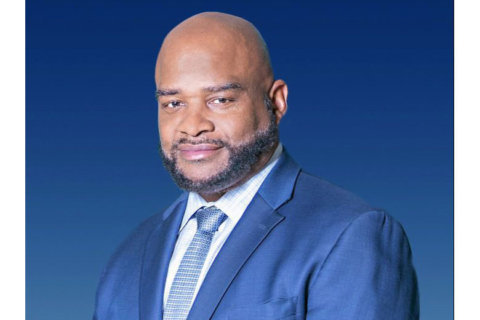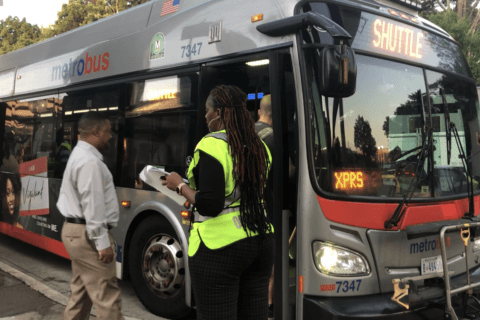Metro and its largest union have formally approved a four-year contract that limits some privatization efforts and includes changes to worker benefits plans.
The agreement allows some train workers to be hired directly for the first time, rather than only selected from existing bus workers. The agreement also provides for raises and requires workers hired in the last decade to contribute to a new retirement fund.
Union members voted Thursday in favor of the deal, and the Metro Board approved the contract Friday at an unusual special session.
The current contract was set to expire June 30.
Metro General Manager Paul Wiedefeld and Amalgamated Transit Union Local 689 President Raymond Jackson worked out the agreement unusually far in advance of that deadline.
“The biggest positive is I think it allows us to work with all of our labor members to focus on customers going forward,” Wiedefeld told WTOP Friday.
Wiedefeld is optimistic it will help efforts to improve customer service.
“Some of those terms, they’re more unique than anything we’ve ever had, and that’s a sign of, I think, the goodwill between both him (Jackson) and I to say, ‘alright let’s take this organization to a different level,’” Wiedefeld said.
The union said 93% of members who voted Thursday endorsed the new contract.
“The deal safeguards our members from privatization, guarantees steady wage increases, and helps provide a path towards bringing the Cinder Bed Bus garage in-house while protecting the workers that work there now,” the union said in a statement.
While the deal raised hopes of ending an ongoing bus strike at a privatized Metro garage in Northern Virginia, the union said Friday that it now expects to continue the strike in part due to a lack of assurances that workers will not be disciplined and because they want to continue to fight privatization at other regional bus services like OmniRide.
Under the new contract with Metro, the Cinder Bed Road garage, where workers have been on strike against private operator Transdev for about two months, will become a direct Metro operated facility by Jan. 1, 2022.
Transdev continues to hold the contract for now though, and the next negotiating session is not scheduled until Jan. 14, the union said.
Deal details
The agreement includes wage restructuring, changes for retirement health benefits and subcontracting rules.
Workers will get 2% raises July 1, 2020 and 2.5% raises every July through 2023, plus additional increases if inflation rises more than 2.5%.
If Metro combined rail and bus ridership increases 2% or more from the prior fiscal year, workers will get an additional 1% pay increase.
Bus and car cleaners will see a new wage structure starting at 60% of the operator rate, and salary increases are accelerated to the top rate after six years.
The agreement establishes a post-retirement health care trust that workers hired in 2010 or later must pay 1% of their gross payroll into. In addition, some retiree health plans will change. The deal also prohibits subcontracting for rail maintenance jobs and certain operations jobs.
Bus operators, train operators, janitors, rail station managers, division clerks, and certain bus and rail maintenance work would stay with union workers.
In a major change, 30% of train operator and station manager vacancies could now be hired from outside of Metro rather than only from people who have worked Metro’s bus division. The agreement also allows all new train operators and station managers for the start of Silver Line Phase 2 service to be hired from outside of the agency.
Those workers would still become part of the union, but Wiedefeld believes the outside hires will allow for people to be brought in based on safety and customer service focus or interest in the rail system rather than limiting the pool of potential hires to workers who have experience mainly as bus operators.
The Cinder Bed Road garage, where workers have been on strike against private operator Transdev for about two months, would become a direct Metro-operated facility by Jan. 1, 2022.
The agreement is expected to have a net cost to Metro of $150.4 million.
Wage increases are expected to cost $187.4 million, but Metro expects savings from hiring of 50 more retirees part-time.






